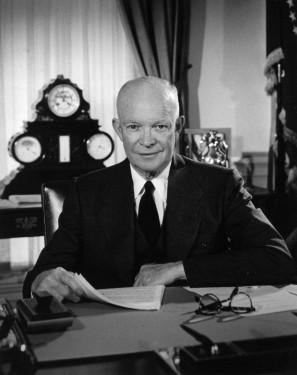
Engineering is the use of scientific principles to design and build machines, structures, and other items, including bridges, tunnels, roads, vehicles, and buildings. The discipline of engineering encompasses a broad range of more specialized fields of engineering, each with a more specific emphasis on particular areas of applied mathematics, applied science, and types of application. See glossary of engineering.

The tertiary sector of the economy, generally known as the service sector, is the third of the three economic sectors of the three-sector theory,. The others are the secondary sector, and the primary sector.

The expression military–industrial complex (MIC) describes the relationship between a nation's military and the defense industry that supplies it, seen together as a vested interest which influences public policy. A driving factor behind the relationship between the military and the defense-minded corporations is that both sides benefit—one side from obtaining war weapons, and the other from being paid to supply them. The term is most often used in reference to the system behind the military of the United States, where the relationship is most prevalent due to close links among defense contractors, the Pentagon, and politicians. The expression gained popularity after a warning of the relationship's detrimental effects, in the farewell address of President Dwight D. Eisenhower on 17 January 1961.

An academic discipline or field of study is a branch of knowledge, taught and researched as part of higher education. A scholar's discipline is commonly defined by the university faculties and learned societies to which they belong and the academic journals in which they publish research.
Fictional technology is technology that does not exist. It may be an idea or design that has not yet been developed, or it may be a fictional device used in a novel.

A war economy or wartime economy is the set of contingencies undertaken by a modern state to mobilize its economy for war production. Philippe Le Billon describes a war economy as a "system of producing, mobilizing and allocating resources to sustain the violence." Some measures taken include the increasing of Taylor rates as well as the introduction of resource allocation programs. Approaches to the reconfiguration of the economy differ from country to country.

The Bauman Moscow State Technical University, BMSTU, sometimes colloquially referred to as the Bauman School or Baumanka is a public technical university (Polytechnic) located in Moscow, Russia. Bauman University is the oldest and largest Russian technical university offering B.S., M.S. and PhD degrees in various engineering fields and applied sciences.
Complex commonly refers to:
The celebrity-industrial complex is a social and economic construct which involves a symbiotic relationship between celebrities and business corporations. First proposed by Vanity Fair columnist Maureen Orth in her book, The Importance of Being Famous (2003), it is fueled both by the celebrities' seemingly continual search for fame and attention and the business corporations' search for catchy headlines as well as viable name brands that could be sustained by such celebrities.

The Misagh-1 is an Iranian man-portable surface-to-air missile. It was developed by the Shahid Kazemi Industrial Complex in Tehran.
The Defence Industry of Pakistan, under the Ministry of Defence Production, was created in September 1951 to promote and coordinate the patchwork of military production facilities that have developed since independence. The ministry also includes seven other specialized organizations devoted to research and development, production, and administration. Pakistan Navy is supported mainly by a facility at the Karachi Shipyard, which has limited production capacity. In 1987 development of a submarine repair and rebuild facility at Port Qasim was begun. By early 2000, in a joint project with China led to the development of the JF-17 Thunder fighter and the Al-Khalid Tank. Pakistan also has taken major steps to becoming self-sufficient in aircraft overhaul, modernization and tank and helicopter sales and a transfer of technology with France led to the construction of the Agosta B-90 Submarine in the late 1990s and early 2000s and is currently participating in many joint production projects such as Al Khalid 2, advance trainer aircraft, combat aircraft, navy ships and submarines. In 2016 the pakistani government managed to reduce its defence imports by 90%.
The military–industrial–media complex is an offshoot of the military–industrial complex. Organizations like Fairness and Accuracy in Reporting have accused the military industrial media complex of using their media resources to promote militarism, which, according to Fairness and Accuracy in Reporting's hypothesis, benefits the defense resources of the company and allows for a controlled narrative of armed conflicts. In this way, media coverage can be manipulated to show increased effectiveness of weapons systems and to avoid covering civilian casualties, or reducing the emphasis on them. Examples of such coverage include that of the Persian Gulf War, NATO bombing of Yugoslavia and the Iraq War. It is a common practice by defense contractors and weapons systems manufacturers to hire former military personnel as media spokespersons. In 2008, The New York Times found that approximately 75 military analysts – many with military industry ties – were being investigated by the Government Accountability Office and other federal organizations for taking part in a years-long campaign to influence them into becoming "surrogates" for the Bush administration's military policy in the media.
The industrial complex is a socioeconomic concept wherein businesses become entwined in social or political systems or institutions, creating or bolstering a profit economy from these systems. Such a complex is said to pursue its own financial interests regardless of, and often at the expense of, the best interests of society and individuals. Businesses within an industrial complex may have been created to advance a social or political goal, but mostly profit when the goal is not reached. The industrial complex may profit financially from maintaining socially detrimental or inefficient systems.

The Complex: How the Military Invades Our Everyday Lives is a book about the United States military, written by journalist Nick Turse. It was published in 2008 in hardcover format by Metropolitan Books. The book describes the vast changes in the industrial complex of the U.S. military from the days of President Dwight D. Eisenhower to 2008, its effect on American society, and how the military and private business spheres interact with each other. The book received positive reviews in Mother Jones and Inter Press Service, and critical reviews by Jeffrey St. Clair of CounterPunch, and in Kirkus Reviews.

The Oklahoma City Air Logistics Complex (OC-ALC) Tinker Air Force Base, Oklahoma is one of the largest units in the Air Force Materiel Command. The complex performs programmed depot maintenance on the C/KC-135, B-1B, B-52 and E-3 aircraft; expanded phase maintenance on the Navy E-6 aircraft; and maintenance, repair and overhaul of F100, F101, F108, F110, F117, F118, F119, F135, and TF33 engines for the Air Force, Air Force Reserve, Air National Guard, Navy and foreign military sales. Additionally, the complex is responsible for the maintenance, repair and overhaul of a myriad of Air Force and Navy airborne accessory components, and the development and sustainment of a diverse portfolio of operational flight programs, test program sets, automatic test equipment, and industrial automation software.

The Lancaster House Treaties of 2010 are two treaties between the United Kingdom and France for defence and security cooperation. They were signed at 10 Downing Street on 2 November 2010 by British prime minister David Cameron and French President Nicolas Sarkozy.
The Ministry of Industrial Policy of Ukraine is a former government ministry of Ukraine; it was the main body in the system of central bodies of the executive power. It was created from the former Ministry of Economy and initially was created as Ministry of Machinebuilding, Military-Industrial Complex and Conversion in 1996 and merged with the Ministry of Economic Development and Trade in March 2014 with headquarters in Kyiv.
A-235 PL-19 Nudol is a Russian anti-ballistic missile and anti-satellite weapon system in development. It is designed to deflect a nuclear attack on Moscow and important industrial regions. The main developer of the system is JSC Concern VKO Almaz-Antey. The new system should replace the current one — A-135. The two main differences will be that the A-235 will use conventional warheads and it will be mobile.
Shaheen Foundation is a welfare foundation of the Pakistan Air Force. Shaheen Foundation works in different sectors ranging from education to aviation.

The term animal–industrial complex (AIC) refers to the systematic and institutionalized exploitation of animals. It includes every economic activity involving animals, such as the food industry, animal testing, medicine, clothing, labor and transport, tourism and entertainment, selective breeding, and so forth. Proponents of the term claim that activities described by the term differ from individual acts of animal cruelty in that they constitute institutionalized animal exploitation.











